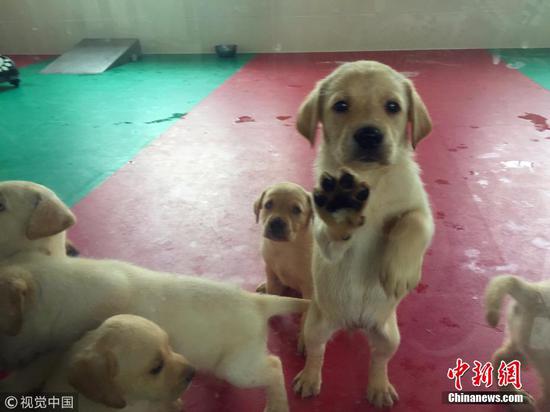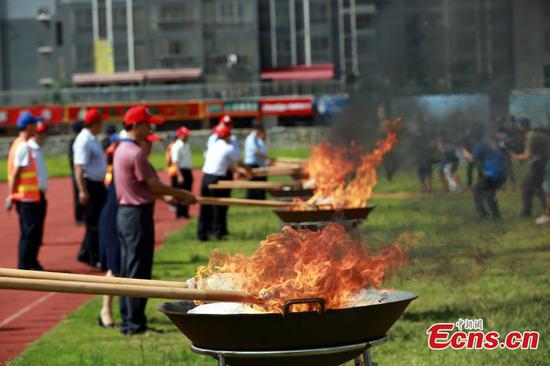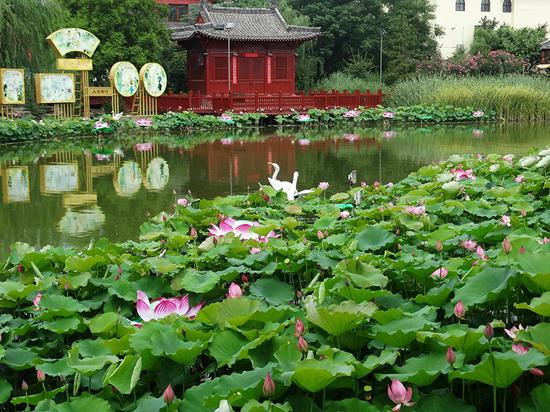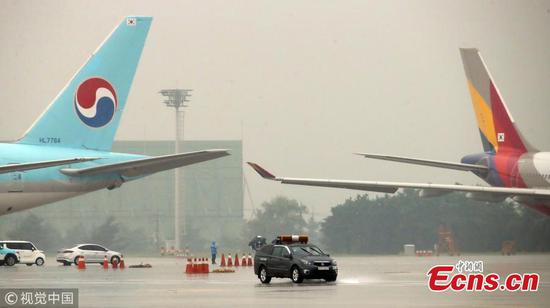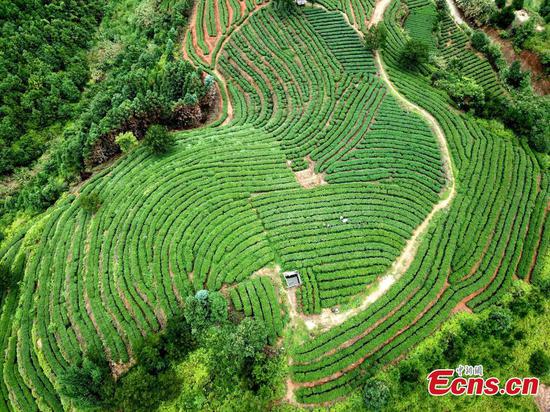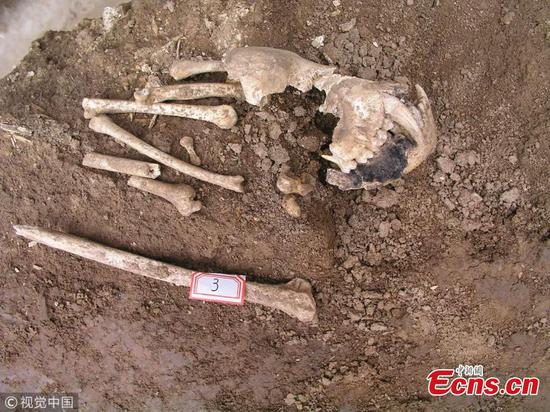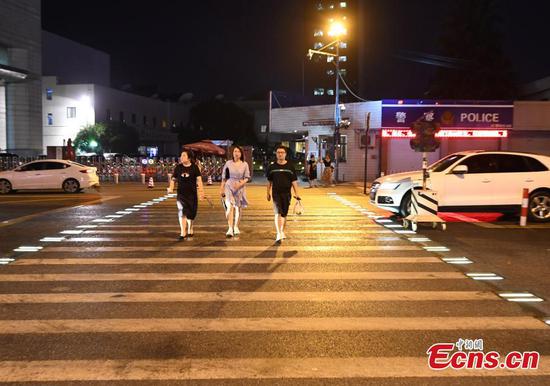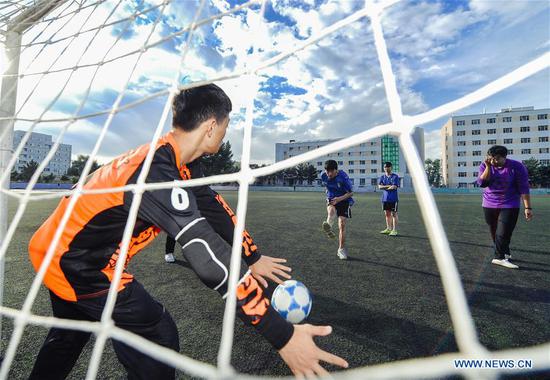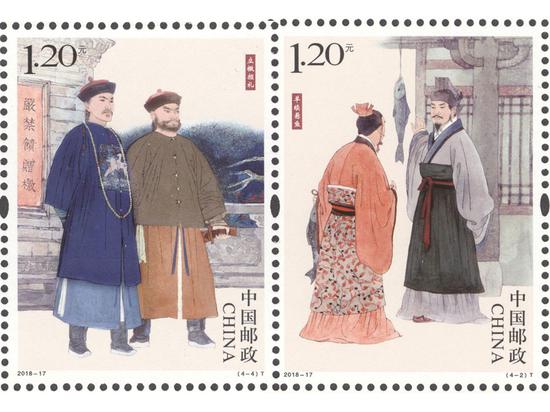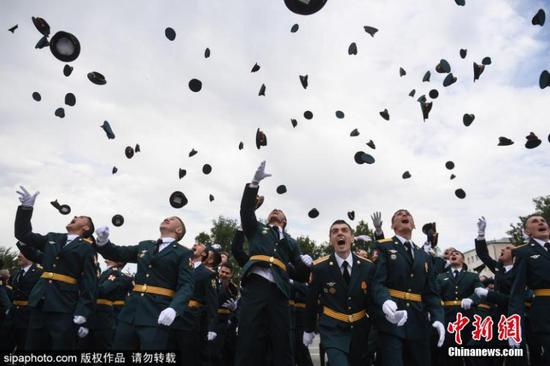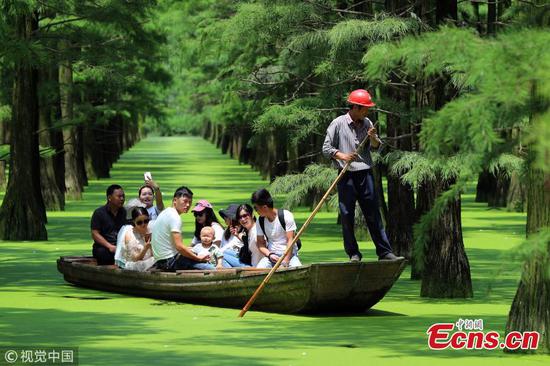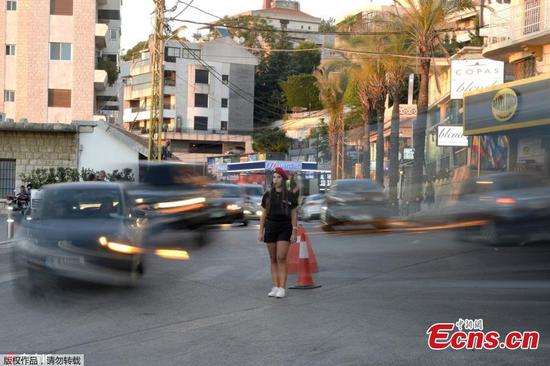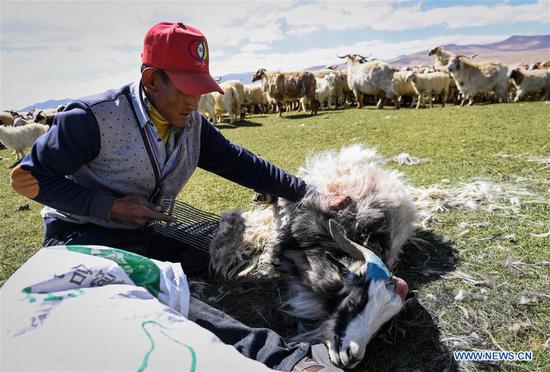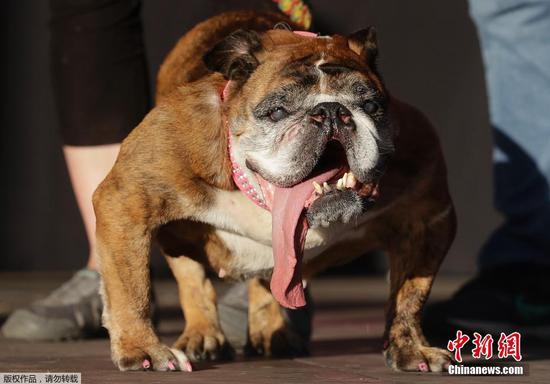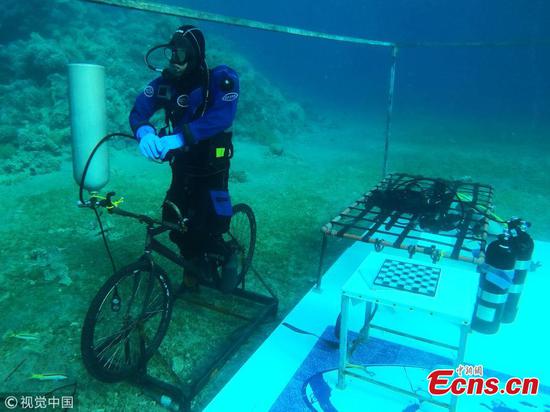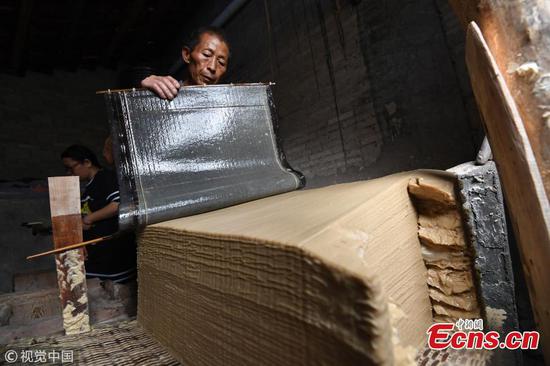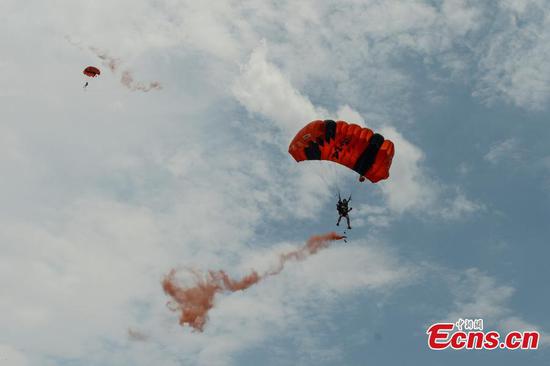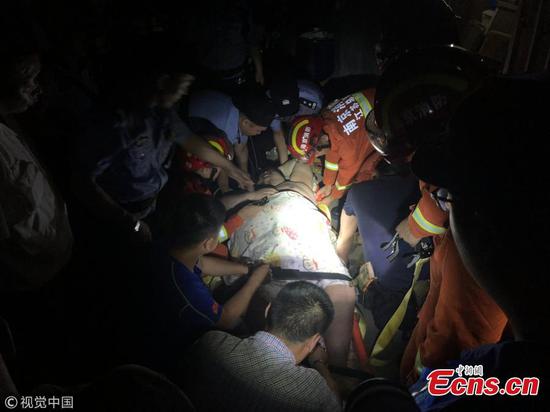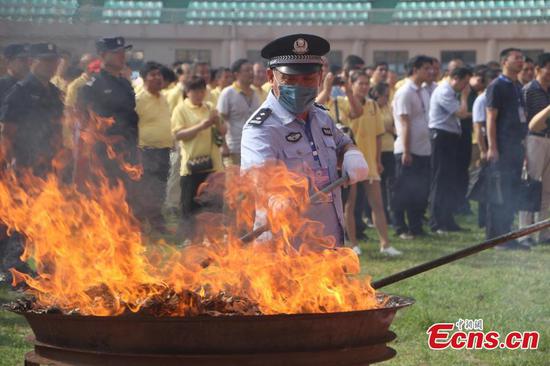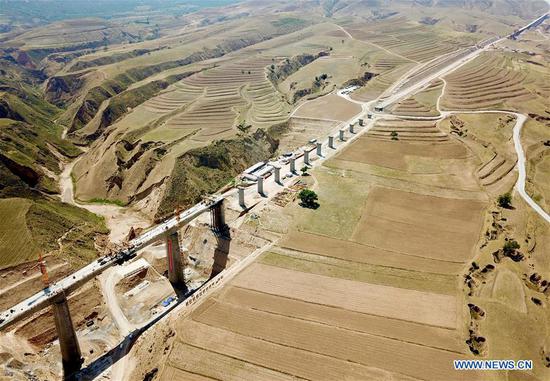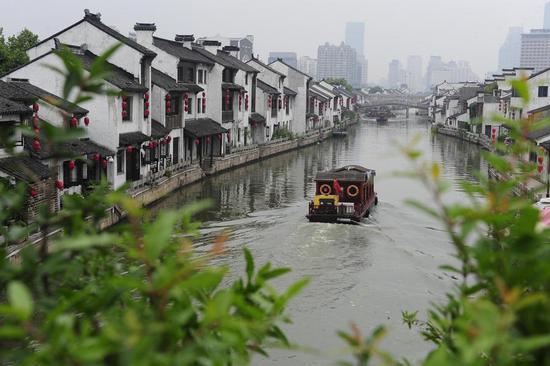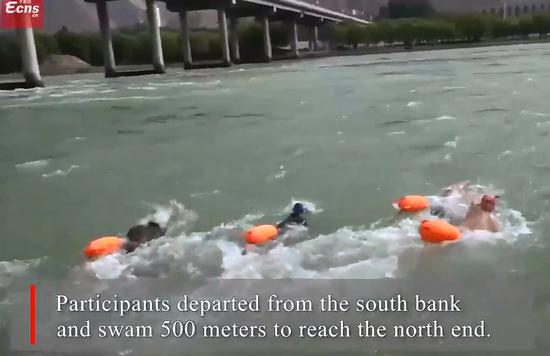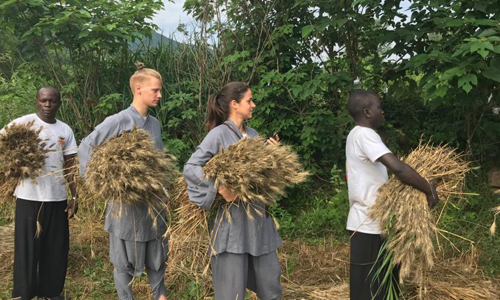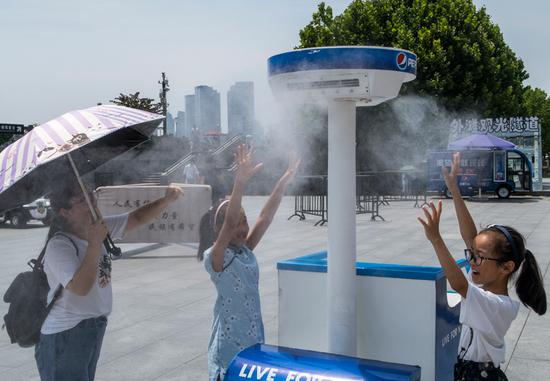
People cool off with a misting system set up in Chenyi Square at the Bund in Shanghai as the high reached 37 C on Tuesday. Rains are expected to bring relief on Thursday. (WANG GANG/CHINA DAILY)
Many cities across the country issued the year's first hot weather alerts on Tuesday, but a government weather expert said the heat wave won't stay for long.
The mercury hit 37 C in downtown Shanghai, where an orange alert was issued for the first time this year along with a warning to citizens-especially children, the elderly and the sick-to keep cool and avoid too much time outdoors. Other areas in the city also reported a high of over 35 C.
Similar temperatures were reported in other cities in the Yangtze River Delta region, as well as in Beijing and Wuhan, capital of Hubei province.
Shanghai's weather bureau said the heat wave, which also swept across Shanghai's neighboring Jiangsu, Zhejiang and Anhui provinces, is caused by a subtropical high and won't last long since rain and thunderstorms are expected to cool down the region on Thursday.
Zhu Jiehua, chief meteorologist at the Shanghai Meteorological Bureau, said that while high temperatures of over 37 C are not as common in June as in July or August in Shanghai, it is not rare for the city to experience such a heat wave in the season. Shanghai also experienced several days of sweltering heat around this time in 2009 and 2011, Zhu added.
It is, however, still difficult to tell whether the city will have another extremely hot summer this year, Zhu said.
Data suggests that Shanghai is getting hotter. Last year, the city experienced a high of 40.9 C on July 21 during a heat wave that lasted for 11 days, the longest in the city in 145 years. That high broke the previous record of 40.8 C set in 2013.
To better cope with such extreme weather, local government has come up with measures to protect the vulnerable, especially those working outdoors.
Since last year, the Shanghai Federation of Trade Unions has set up air-conditioned lounges in gas stations across the city for those working outdoors such as sanitation workers. They provide free drinking water, first-aid kits and other conveniences while the workers take a break during times of extreme weather.









